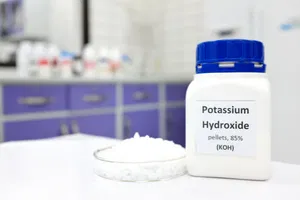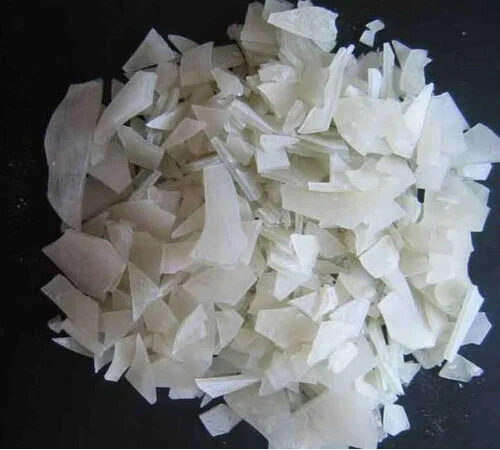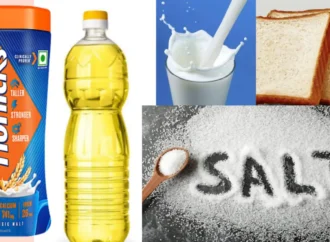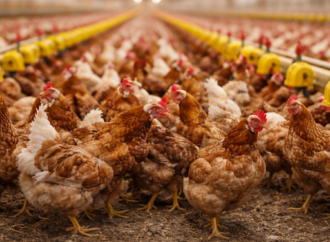Caustic potash, or potassium hydroxide (KOH), serves as an indispensable compound with wide-ranging applications, particularly in the food industry. Its strong alkaline properties allow it to regulate pH levels, stabilize food products, and maintain hygienic production processes. Manufacturers produce KOH by electrolyzing potassium chloride, and regulators, including the FDA and FSSAI, recognize it as a safe food additive (E525) under global standards. Its versatility extends beyond food, supporting industries such as agriculture, pharmaceuticals, and electronics. This article highlights the diverse applications of caustic potash and underscores its critical role in enhancing food quality, safety, and shelf life.
What Is Caustic Potash?

Potassium hydroxide (KOH) is an inorganic alkaline compound that is highly soluble in water. Manufacturers create it through the electrolysis of potassium chloride, producing potassium hydroxide and chlorine gas. Due to its strong alkaline properties, KOH can neutralize acids, emulsify oils, break down fats, and clean surfaces.
In the food industry, potassium hydroxide (KOH) plays a crucial role in adjusting pH levels, stabilizing food products, and cleaning equipment. The Food Safety and Standards Authority of India (FSSAI) regulates its use to ensure the safety and quality of food products. KOH is recognized as a food additive under the number E525, and its use in food is considered safe when managed according to good manufacturing practices (GMP).
Key Applications of Caustic Potash in the Food Industry
Caustic potash plays a vital role in the food industry, offering various functions that enhance product quality, safety, and shelf life. The most common applications of KOH in food production include:
- pH Regulation and Acidity Adjustment
KOH helps adjust pH levels and correct acidity in food products. It neutralizes excess acidity in items such as beverages, fruit juices, sauces, and pickles. By balancing the pH, potassium hydroxide maintains the desired taste, texture, and stability of these products. For example, in canned vegetable production, KOH regulates the acidity of brine solutions, ensuring the produce remains crisp and flavorful.
- Food Thickening and Stabilization
KOH also serves as a thickener and stabilizer in various food products. It helps maintain the consistency of sauces, soups, salad dressings, and dairy items by preventing ingredient separation. In emulsified products like mayonnaise and margarine, potassium hydroxide stabilizes the emulsion, ensuring that the product remains smooth and well-blended.
- Cleaning and Sterilization
KOH plays a critical role as a detergent and antimicrobial agent in food manufacturing. It effectively cleans food equipment, production lines, and utensils by breaking down fats, oils, and proteins. The strong cleaning properties of KOH help remove grease and soil, maintaining hygienic conditions in food production environments. Additionally, its antimicrobial properties reduce the risk of contamination by eliminating harmful bacteria and pathogens.
- Peel Removal in Fruit and Vegetable Processing
Potassium hydroxide is commonly used in fruit and vegetable processing to assist in peeling. In the production of canned goods like tomatoes, olives, and fruits, KOH softens skins, making mechanical peeling easier. This process ensures the final product maintains the desired texture and appearance.
- Improving Food Preservation
KOH is used to formulate potassium salts, which act as preservatives in food products. These salts help extend the shelf life of processed foods by inhibiting microbial growth. By preserving the stability and safety of food, potassium hydroxide contributes to maintaining the quality of products such as beverages, canned goods, and processed meats.
Other Industrial Applications of Caustic Potash
Beyond its role in food production, caustic potash (KOH) has a wide range of applications across industries such as agriculture, pharmaceuticals, energy production, and electronics.
- Agricultural Uses
KOH plays a crucial role in the formulation of potassium-based fertilizers. Potassium is essential for plant growth, and KOH enhances soil fertility, boosts crop yields, and promotes overall plant health. Potassium-based fertilizers also help plants resist stress, improve water retention in the soil, and increase the nutritional value of crops.
- Biodiesel Production and Gas Treatment
In biodiesel production, KOH catalyzes the transesterification process, where oils and fats are converted into biodiesel. It also contributes to gas treatment by removing sulfur compounds from refinery gases, reducing pollution, and improving environmental conditions.
- Electronics Industry
In the electronics industry, potassium hydroxide aids in the production of semiconductors. Its strong alkaline properties make it effective in cleaning and etching silicon wafers used in microelectronics, which supports the development of modern electronic devices.
Safety and Regulatory Considerations
The FDA considers potassium hydroxide safe for use in food products when manufacturers follow Good Manufacturing Practices (GMP). As a recognized food additive (E525), KOH is deemed safe as long as it is used according to strict guidelines. Manufacturers must ensure that potassium hydroxide is used in appropriate quantities and that food products remain free from contaminants.
In India, the Food Safety and Standards Authority of India (FSSAI) regulates the use of KOH in food products to ensure safety and quality. FSSAI standards require that products containing potassium hydroxide meet safety regulations, including accurate labelling, clear dosage instructions, and effective quality control measures.
Conclusion
Caustic potash (KOH) is an essential compound in the food industry, playing a vital role in improving product quality, safety, and stability. From regulating pH levels and stabilizing emulsions to cleaning production equipment and facilitating peel removal, potassium hydroxide supports numerous processes that ensure food products meet consumer expectations. Additionally, its use in agriculture, energy, and electronics further demonstrates its versatility and importance across various industries.
When used according to safety guidelines, potassium hydroxide remains a safe and effective ingredient in food production, contributing to the development of high-quality, safe, and nutritious products. By adhering to regulations and quality standards, manufacturers ensure that consumers can enjoy products that are both safe and of the highest quality.
 Food Manifest
Food Manifest 


















